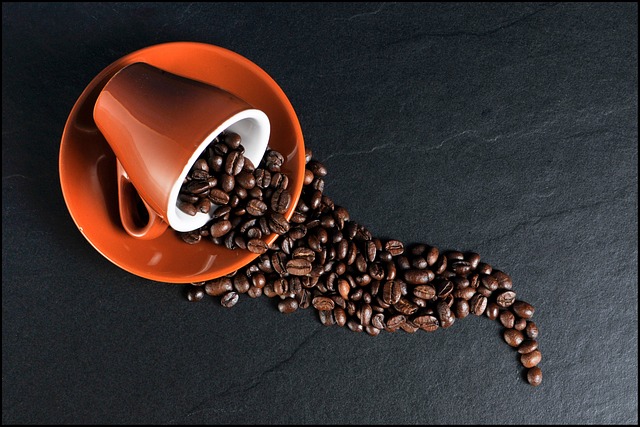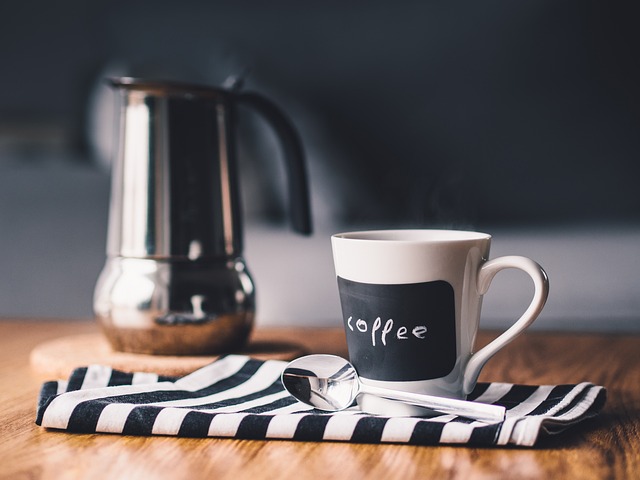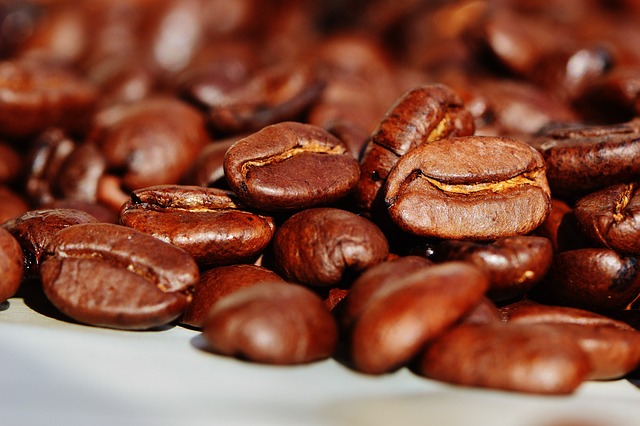Welcome, tea enthusiasts! If you’ve ever wondered about the caffeine content in your favorite cup of truly delightful tea, we’ve got some sipping insights to share. Today, we’re delving into the fascinating world of tea and caffeine to help you unravel this captivating mystery. So grab your teacup, settle in, and prepare to embark on an informative journey that will quench your thirst for knowledge. Get ready to discover the truth behind whether truly tea has caffeine or not!
1. The Intriguing World of Truly Tea: Unveiling the Mystery of Caffeine Content
When it comes to tea, one of the fascinating aspects that has puzzled tea enthusiasts for centuries is the caffeine content within different varieties. From the soothing chamomile to the invigorating black tea, the caffeine levels can vary significantly, adding to the intrigue of this beloved beverage.
Let’s start by exploring some of the most popular types of tea and their caffeine content:
- Green Tea: Known for its refreshing and light flavor, green tea typically contains 20-45 milligrams of caffeine per cup. This amount can vary depending on factors such as steeping time and water temperature.
- Black Tea: If you’re in need of a morning pick-me-up, black tea is a reliable choice. With approximately 40-70 milligrams of caffeine per cup, it can provide a satisfying energy boost.
- Oolong Tea: Falling between green and black tea, oolong tea boasts an average caffeine content of 30-50 milligrams per cup. Its unique taste and aroma make it a favorite among tea connoisseurs.
Understanding the caffeine content of different teas can help you choose the perfect cuppa for any occasion. Whether you’re looking for an energizing start to your day or a soothing blend to unwind, there’s a tea out there to suit your needs and preferences.

2. Tea Unveiled: Is There More to Truly Tea than Meets the Eye?
You might think of tea as just a simple beverage, but there is definitely more to it than meets the eye. Beyond its refreshing taste and comforting aroma, tea has a rich history and is associated with many health benefits. Let’s delve deeper into this fascinating drink and explore its various dimensions.
1. Types of Tea:
There is a whole world of tea waiting to be discovered. From classic black tea and invigorating green tea to floral herbal infusions, each type brings its own unique flavor and characteristics. Whether you prefer the boldness of Assam tea or the delicate fragrance of chamomile, there is a vast array of options to suit every taste.
2. Health Benefits:
It’s not just about the taste; tea offers numerous health perks too. Packed with antioxidants, tea can potentially boost your immune system, reduce the risk of heart disease, improve brain function, and promote overall well-being. Additionally, certain teas like peppermint or ginger can aid digestion, while others such as lavender or chamomile are renowned for their calming properties.

3. Caffeine Chronicles: Demystifying the True Nature of Truly Tea
Caffeine Chronicles is here to demystify the true nature of Truly Tea. If you’ve been wondering about the effects of caffeine in your favorite cup of tea, this is the place to find out! Let’s dive right in.
1. Caffeine content in tea: Contrary to popular belief, tea contains caffeine, but in lower amounts compared to coffee. On average, a cup of tea contains anywhere from 30 to 50 milligrams of caffeine. However, this can vary depending on factors such as the type of tea, brewing time, and the part of the tea plant used. Green and white teas tend to have a lower caffeine content, while black tea usually has a bit more.
2. Effects of caffeine: Caffeine is a natural stimulant that affects the brain and nervous system. When consumed in moderation, it can provide a gentle boost of alertness and improve concentration. It can also elevate your mood and give you a sense of wakefulness. However, it’s essential to remember that everyone reacts differently to caffeine. Some individuals might experience jitters or anxiety if they consume too much, so it’s best to gauge your own tolerance and enjoy tea within your comfort zone.
4. Truly Tea and Caffeine: An Unexpected Connection Revealed
Are you a tea lover who can’t go a day without a cup of your favorite brew? Well, prepare to be amazed by the unexpected connection between consuming truly tea and caffeine. Contrary to common belief, not all tea types carry the same caffeine content. Let’s dive into the fascinating world of tea and unravel this surprising revelation!
1. Camellia sinensis: This species of tea plant is responsible for giving us the classic black, green, white, and oolong teas. While black tea generally contains the highest amount of caffeine among these varieties, green tea surprisingly contains less. However, don’t let that fool you into thinking green tea is caffeine-free – it still has enough to keep you alert and focused throughout the day.
2. Herbal teas: Technically, herbal teas are not made from the Camellia sinensis plant. They are derived from various herbs, spices, fruits, and flowers. Here’s the good news for those wanting to reduce caffeine intake: herbal teas are almost always caffeine-free! This means you can sip on soothing chamomile, refreshing peppermint, or tangy hibiscus blends without worrying about staying up all night.
5. Decoding the Caffeine Puzzle: How Truly Tea Stacks Up Against Other Beverages
When it comes to deciphering the caffeine content in beverages, Truly Tea is a standout choice that offers a whole host of benefits. Let’s explore how it stacks up against other popular drinks in this caffeine puzzle.
The Great Tea vs. Coffee Debate:
Tea and coffee are often pitted against each other in the battle of caffeine powerhouses. While coffee typically takes the lead in terms of caffeine content, Truly Tea holds its own with a refreshing twist. Here’s how they compare:
- Caffeine Content: A cup of Truly Tea contains around 25-50 milligrams of caffeine, whereas coffee can boast a higher caffeine content ranging from 95-165 milligrams. Despite the disparity, Truly Tea offers a moderate caffeine kick for those who prefer a gentler buzz.
- Health Benefits: Truly Tea takes the crown when it comes to health benefits. It is packed with antioxidants, polyphenols, and other bioactive compounds that support immune function, aid digestion, promote heart health, and even contribute to glowing skin. Coffee, on the other hand, though rich in antioxidants, may cause jitters and disrupt sleep patterns when consumed in excess.
- Taste and Variety: Truly Tea wins with its diverse range of flavors and soothing aroma. From calming chamomile to invigorating green tea, there’s a flavor to suit every mood. Coffee aficionados may argue that nothing beats the taste of a perfectly brewed cup, but Truly Tea offers a delightful sip with added health benefits.
In conclusion, while Truly Tea may not match coffee’s caffeine punch, it more than compensates with its health benefits and delicious flavors. So, the next time you’re craving a warm, soothing beverage, consider reaching for a cup of Truly Tea and unlock a world of goodness, one sip at a time!
6. The Art of Sipping: Exploring Truly Tea’s Caffeinated and Caffeine-Free Options
Truly Tea is your ultimate destination to indulge in the art of sipping. With an array of options that cater to both caffeine enthusiasts and those seeking a delectable, caffeine-free treat, this tea haven has something to suit every taste bud. Let’s explore the intriguing world of Truly Tea’s offerings, meticulously crafted to delight and surprise.
For the caffeine lovers, Truly Tea boasts an impressive selection of energizing blends that are perfect for jumpstarting your day or enjoying a mid-afternoon pick-me-up. From robust black teas to invigorating green teas, each sip promises a revitalizing experience. Delight in the bold flavors of our high-quality Assam, Darjeeling, or English Breakfast teas, which boast rich, malty notes that awaken the senses. If you prefer a lighter touch, our delicate white teas, such as Bai Mudan or Silver Needle, offer a refreshing and subtly sweet experience. Bold or subtle, our caffeine-infused options are sure to please even the most discerning tea connoisseur.
For those looking to unwind and enjoy tea without the buzz of caffeine, Truly Tea presents an exquisite collection of caffeine-free blends. Indulge in the soothing embrace of herbal infusions, meticulously curated to offer unique flavor profiles and therapeutic benefits. Our chamomile blend exudes a calming aroma and helps promote a peaceful night’s sleep. The zesty notes of our citrus-infused herbal teas invigorate the senses and make for a perfect, refreshing beverage any time of the day. With Truly Tea’s caffeine-free options, you can savor the flavors without the worry of sleepless nights or caffeine jitters.
Whether you’re a caffeine aficionado or prefer the tranquility of herbal infusions, Truly Tea invites you on a journey of exploration through its wide selection of teas. Prepare to be captivated by the artistry and craftsmanship poured into each sip, as Truly Tea indulges your taste buds with unforgettable flavors that will leave you craving more.
7. All You Need to Know: Navigating the Caffeine Content in Truly Tea
Caffeine is a molecule that naturally occurs in various food and beverages, including tea. When it comes to Truly Tea, it’s crucial to understand the caffeine content to make informed choices about your daily caffeine intake. Here’s everything you need to know:
1. Understanding caffeine levels: Different types of Truly Tea have varying levels of caffeine. While herbal and fruit infusions, such as chamomile or hibiscus tea, are naturally caffeine-free, black and green teas contain caffeine. However, the specific amount can vary depending on factors like brewing time, water temperature, and the quality and origin of the tea leaves.
2. Factors influencing caffeine content: Apart from the brewing process, the caffeine content in Truly Tea can also be influenced by the tea blend or variety chosen. For example, some black teas tend to have higher caffeine levels compared to green or oolong teas. Additionally, choosing tea made from younger tea leaves may result in a slightly higher caffeine content.
8. Sipping Insights for Tea Lovers: Unraveling the Caffeine Secrets of Truly Tea
If you’re a tea lover searching for new insights and secrets about your favorite beverage, you’re in for a treat! In this section, we will dive into the fascinating world of tea, uncovering the mysteries behind its caffeine content and helping you make more informed choices.
First and foremost, it’s important to understand that not all teas are created equal when it comes to caffeine. While black tea is known for its energizing kick, green tea provides a more gentle and balanced boost. For those looking to minimize caffeine intake, herbal teas like chamomile and peppermint are entirely caffeine-free, making them a great choice for a soothing cup before bedtime.
- Black Tea: This bold and robust tea is packed with caffeine and can give you a much-needed pick-me-up in the morning or during a midday slump.
- Green Tea: With a lower caffeine content, green tea offers a milder but sustained energy boost.
- Herbal Tea: Perfect for unwinding, herbal teas are naturally caffeine-free, allowing you to enjoy a comforting cup anytime without worrying about disrupting your sleep.
It’s important to note that the actual caffeine content can vary depending on factors such as steeping time, water temperature, and the specific tea leaves used. To further control your caffeine intake, you can opt for decaffeinated tea, which undergoes a process to remove most of the caffeine while retaining the flavor and health benefits. So whether you’re looking for a stimulating kick or a soothing beverage to wind down, understanding the caffeine secrets of truly tea will help guide you towards the perfect cup for any occasion.
Frequently Asked Questions
Q: Does truly tea have caffeine?
A: Yes, some truly tea varieties do contain caffeine, while others are naturally caffeine-free.
Q: How do I know if my truly tea has caffeine?
A: Look for the specific type of tea you are drinking. Varieties such as black, green, and white tea usually contain caffeine. On the other hand, herbal teas like chamomile and peppermint are typically caffeine-free. Checking the label or researching the tea type can give you a clear idea about its caffeine content.
Q: Why does truly tea sometimes have caffeine?
A: The presence or absence of caffeine in tea depends on the plant it is derived from. Camellia sinensis, a type of evergreen shrub, is used to produce teas like black and green tea, which naturally contain caffeine. However, herbal teas are made from different plants or herbs that do not have caffeine.
Q: How much caffeine is usually found in truly tea that contains it?
A: The caffeine level in teas can vary. Typically, black tea contains the highest amount of caffeine, ranging from 40-70 milligrams per cup. Green tea follows with a range of 20-45 milligrams of caffeine. Meanwhile, white tea has a lower caffeine content, usually around 15-30 milligrams per cup.
Q: Is truly tea a good choice if I want to reduce my caffeine intake?
A: If you’re looking to decrease caffeine consumption, there are wonderful caffeine-free options among truly teas. Herbal teas like chamomile, peppermint, or rooibos can provide you with a delightful and soothing experience without the stimulation of caffeine.
Q: Can I still enjoy the benefits of tea if I drink truly tea without caffeine?
A: Absolutely! Even caffeine-free truly teas offer various benefits. Herbal teas are often prized for their calming effects, aiding in relaxation and promoting better sleep. Additionally, many herbal teas are rich in antioxidants, which can help boost your immune system and overall well-being.
Q: Are there any tricks to reduce the caffeine in truly tea if it contains it?
A: If you have a tea that contains caffeine but want to reduce its content, there are a couple of methods you can try. Steeping the tea for a shorter duration can help, as a significant portion of caffeine is released during the initial steeping process. Another option is to choose decaffeinated truly teas, which undergo a specific process to remove most of the caffeine while retaining the flavor.
Q: Can I rely on decaffeinated truly tea to be completely caffeine-free?
A: While decaffeinated truly tea goes through a process to remove caffeine, it’s important to note that a tiny amount may still remain. The exact caffeine content can vary based on the tea, brand, and decaffeination method used. However, the residual caffeine is typically minimal and likely won’t have a significant impact on those desiring a caffeine-free experience.
Q: What factors should I consider when choosing truly tea with or without caffeine?
A: When deciding whether to choose truly tea with or without caffeine, consider your personal preferences and lifestyle. If you enjoy the stimulating effects of caffeine or need a morning boost, teas containing caffeine might be your preference. On the other hand, if you wish to relax, avoid caffeine, or have sensitivities to it, opt for caffeine-free truly teas to suit your needs and taste preferences.
Key Takeaways
In conclusion, tea enthusiasts can rest assured that Truly Tea does indeed contain caffeine, although in varying quantities depending on the type and processing method of the tea leaves. Black tea, oolong tea, and green tea are among the caffeinated options to choose from, providing that desired morning or midday boost. On the other hand, herbal teas and certain decaffeinated blends offer a delightful alternative for those seeking a caffeine-free option. So, whether you’re in need of a gentle pick-me-up or a relaxing cuppa before bed, Truly Tea has a wide array of flavors and caffeine levels to cater to every tea lover’s preference. In this vast and fascinating world of tea, there’s a delightful cup waiting to be savored by everyone. Cheers to exploring the diverse sipping insights offered by Truly Tea!






